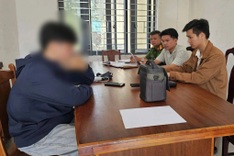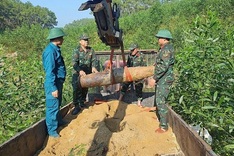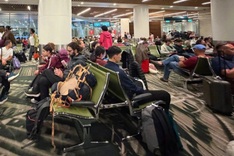People working in the atomic energy field may get incentives equalling up to 70 per cent of their salary, plus travel and accommodation assistance, in a new move to attract a top quality workforce to the industry.
The incentives are among many benefits laid down in a new decree associated with the Law on Atomic Energy and due to come into force next month.
"People working in the atomic energy field will enjoy the highest allowance offered to governmental officials under the current labour policies," Viet Nam Atomic Energy Commission chairman Vuong Huu Tan said.
Tan said the new decree was a breakthrough in helping address the shortage of human resources quality and quantity.
"For the time being, the application of atomic energy is merely limited to the utilisation of radioactive materials, such as in medical treatment," said Tan, whose department comes under the Ministry of Science and Technology.
"However, Viet Nam plans to expand its activities in the atomic energy field, marked by the construction of the first nuclear power plant in 2014."
This highlighted the urgent need for high-quality human resources, particularly in nuclear power projects, Tan said.
Trinh Huu Toan, a lecturer from the Institute of Nuclear Energy and Environmental Physics, said the incentives would probably have an impact on new graduates but might not be enough to attract high-quality Vietnamese specialists working abroad.
"Many friends of mine don't only have attractive salary packages, they also have modern working environments where they are able to apply what they have learnt," said Toan, whose institute comes under Ha Noi University of Technology. "The important thing is how quickly this will be put into action."
In the decree, the ministry is required to plan of a comprehensive network of observation posts to evaluate the effects of radiation on the environment.
"In other countries, including South Korea and Japan, there are dozens of posts nation-wide," Tan said.
The network of observation posts was crucial to improve the warning system once atomic energy was widely applied, he said.
"When there is trouble – say at a nuclear power plant or even in neighbouring countries – the network would give us the information we need to warn the public.
Nuclear industry incentives to lure qualified workers
People working in the atomic energy field may get incentives equalling up to 70 per cent of their salary, plus travel and accommodation assistance.
Source: VNS




















